PC Gamer plays: Blackwell, Rogue Book, Final Fantasy 14, Chicken Police
What does the team have on their PCs this month?
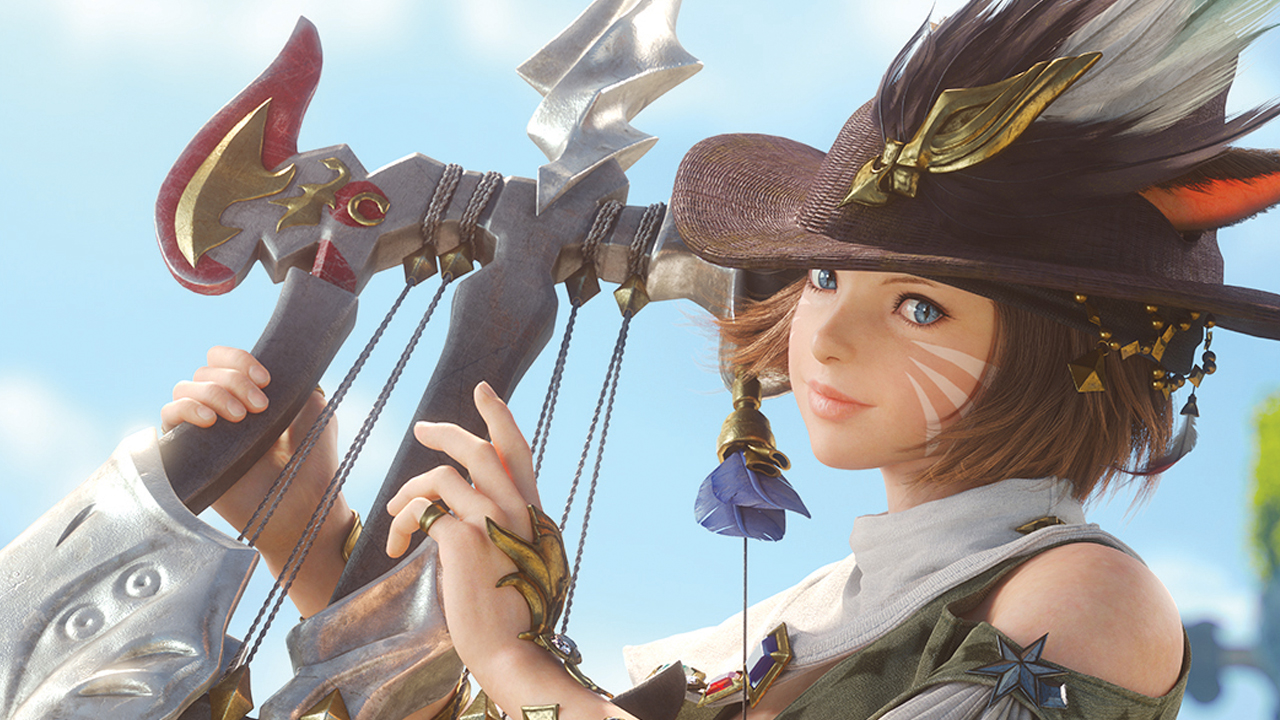
Trudging wearily into the office from the rain-slicked pavement and slipping out of their sodden trenchcoats, the PC Gamer team gathers around the corkboard to discuss the latest leads in the case. This month in exploring gaming's dark and dangerous back alleys, Robert solves supernatural crimes in the Blackwell quintilogy, Robin expands his deck in Roguebook, Daniella discusses community and maternity in Final Fantasy XIV, and Luke joins the fuzz in Chicken Police: Paint it Red!
Cracking the Case in the Blackwell Quintilogy - Robert Zak
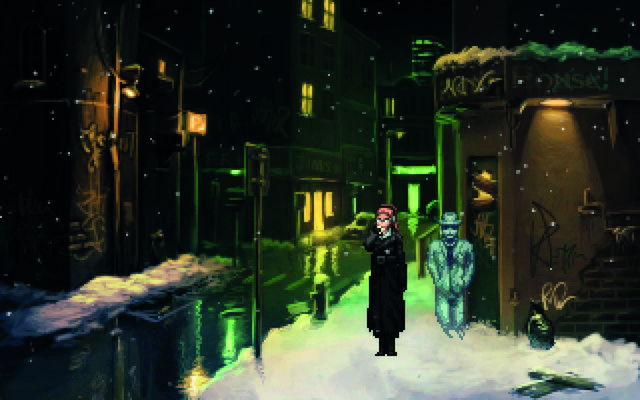
We all have our ‘end of a long day’ games that we relax in without the faculties of refl exes or a fully switched-on brain. For me lately, those games have been Dave Gilbert’s Blackwell series. They’re 2D point-and-click adventures in the old-school mould – they wait patiently as I click their scenes down to every last detail, they’re 100% voice acted, and their jazzy soundtracks envelop me like steam rising from a New York subway.
I came to the Blackwell series after playing Gilbert’s latest game, Unavowed, set in the same universe where the supernatural murmurs in the shadows of a beautifully observed New York City. And while Unavowed may well be the best point-and-click ever made, it’s fascinating to see Gilbert and his studio Wadjet Eye Games climb towards that creative zenith through the Blackwell series.
Gilbert uses ghosts and the supernatural to explore serious themes.
There are five games in total, following socially awkward spirit medium Rosangela Blackwell as she wanders a mostly nocturnal New York City in search of lost souls who need help passing on to the afterlife. She does this alongside her spirit guide Joey Mallone – a caustic-humoured ghost who looks and sounds like a PI from the 1950s, and who was also guide to Rosa’s late aunt Lauren.
Joey and Rosa’s dynamic is a peculiar one – his nasal lexicon, through which he calls Rosa ‘doll’ or ‘dollface’ contrasting with Rosa’s distinctly New York dryness and neuroticism. You may not warm to them right away, but their relationship offers moments of both comic relief and pensive refl ection at just the right moments. It’s central to Rosa’s journey from rudderless young adult into seasoned medium.
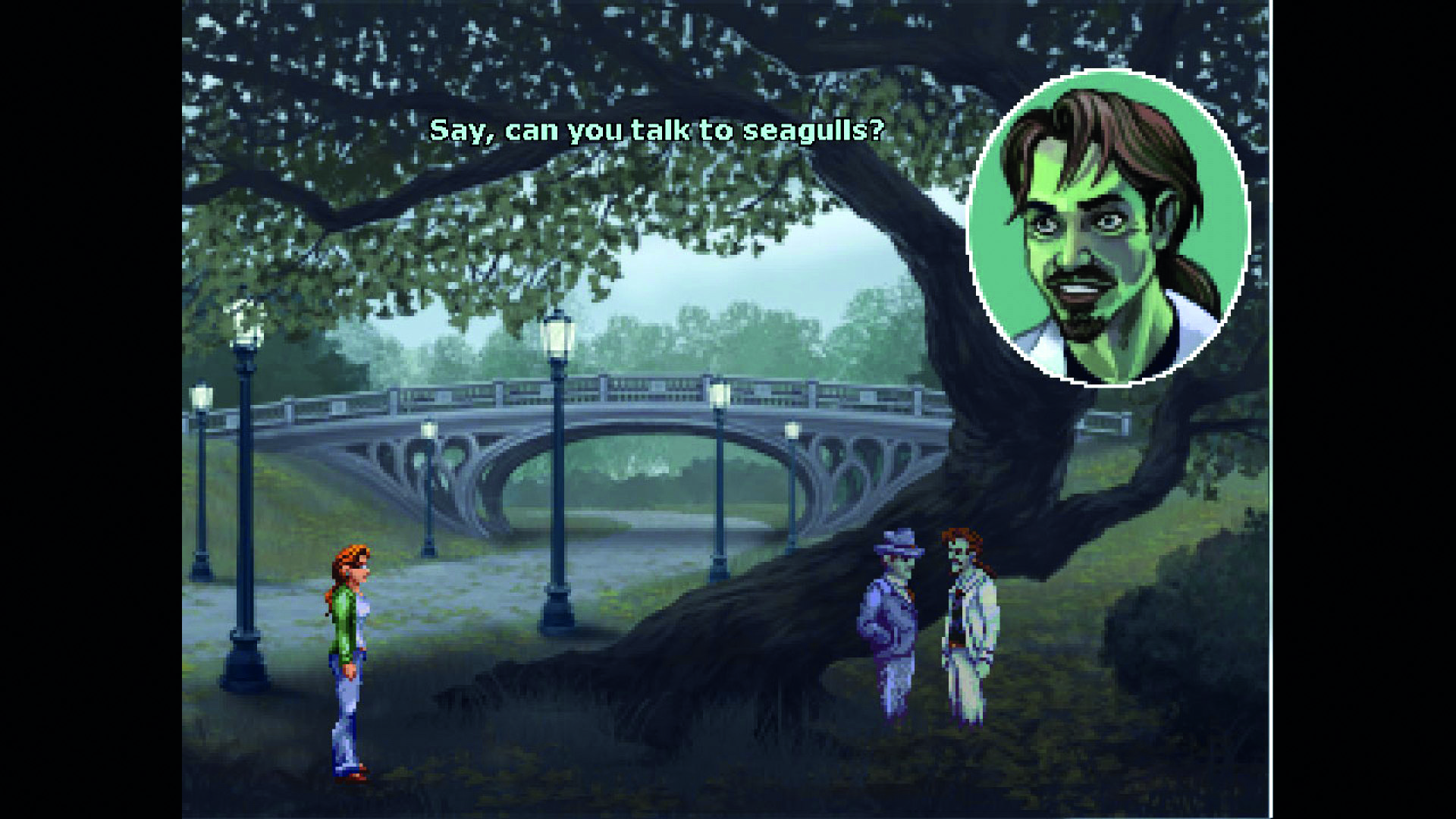
Gilbert uses ghosts and the supernatural to maturely explore some serious themes. Suicide, depression, and mental illness all come up – young lives extinguished too soon, a businessman buried in debt, a musician who drowns his talent in alcohol. Their hauntingly lifelike stories and lonely limbo existence as ghosts invests you in helping them move onto the next realm – whatever that may be.
Once it finds its feet, the series settles into a rhythm of journalistic-style investigations, as you listen to people carefully for key names and places, then type them into Rosa’s computer to unlock new locations or dialogue options. Once you gather information, you return to the ghosts and try to jog their memory by getting them to accept the fact that they’re dead.
The biggest gaming news, reviews and hardware deals
Keep up to date with the most important stories and the best deals, as picked by the PC Gamer team.
No games capture the spirit of a real-world city like Blackwell captures New York. The diversity of the city’s denizens is well represented, while the hand-drawn locations are instantly recognisable.
I really enjoy seeing the clear creative progress through the series too. You can feel both the writing and artwork maturing alongside its existentially wayfaring protagonist. By going through the Blackwell series game by game, you get to witness the creative journey of one of the best writers in videogames.
Turning your deck into a tome in Roguebook - Robin Valentine
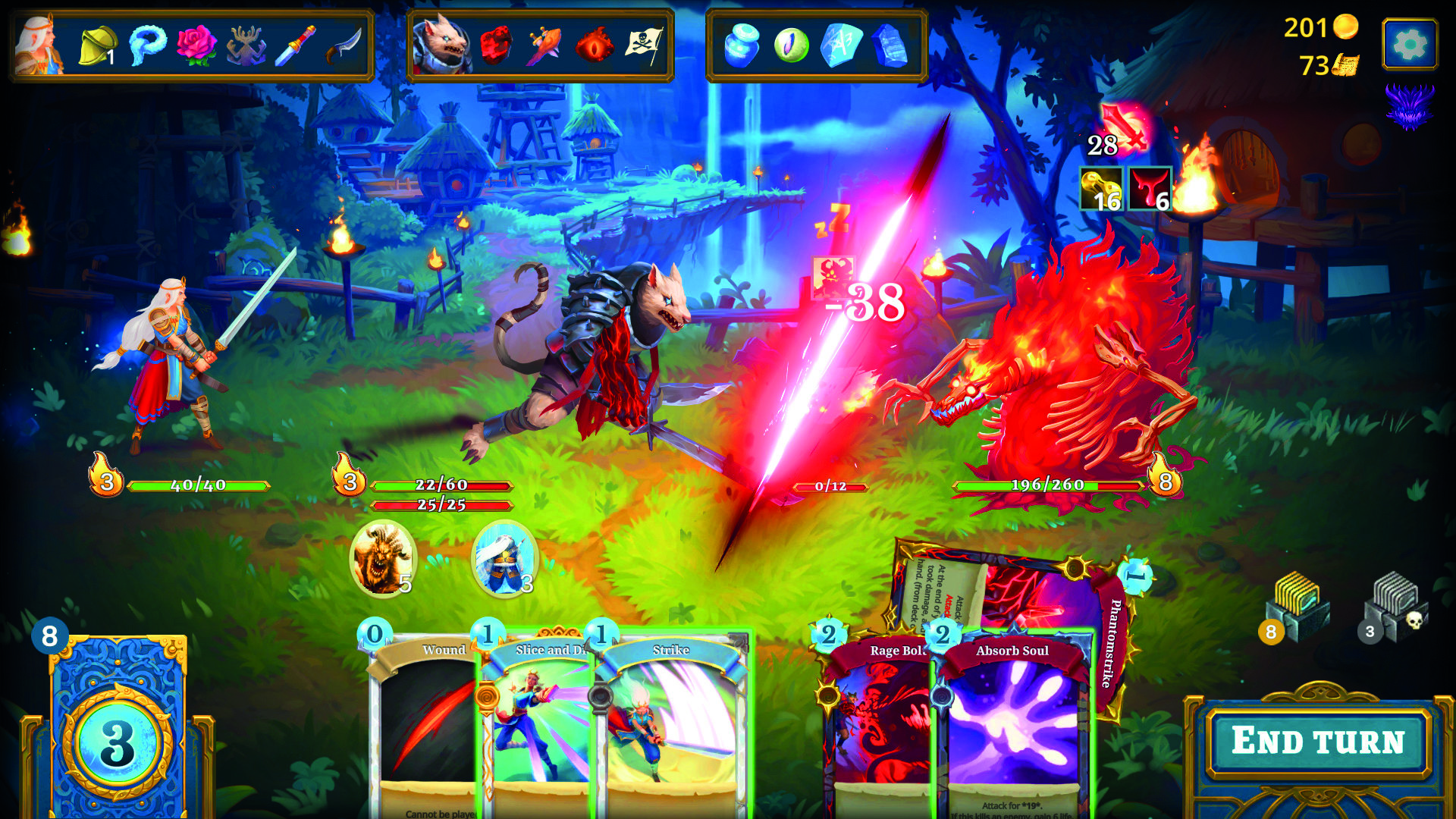
In deck-building games, less is more. That is, you’re usually working towards a small deck, taking every opportunity to jettison cards and thinking carefully before adding anything new.
You’re looking for predictability. You want the cards that make up your game-winning combo to come up, so you don’t want your draw diluted with things that don’t fi t. In games like Slay the Spire, the ideal deck might be as small as five cards, creating one reliable sequence you can pull off every turn.
That sense of refining a deck down to its purest essence is a tactical thrill, but it’s not very conceptually fun. Your instinct is to want to grab every cool new thing that comes your way, to feel like the possibilities are expanding before you. Being miserly about your deck is unintuitive, and can make the final stages of a run a rote affair – you’ve finished making something that works, and now just need to go through the motions of proving it.
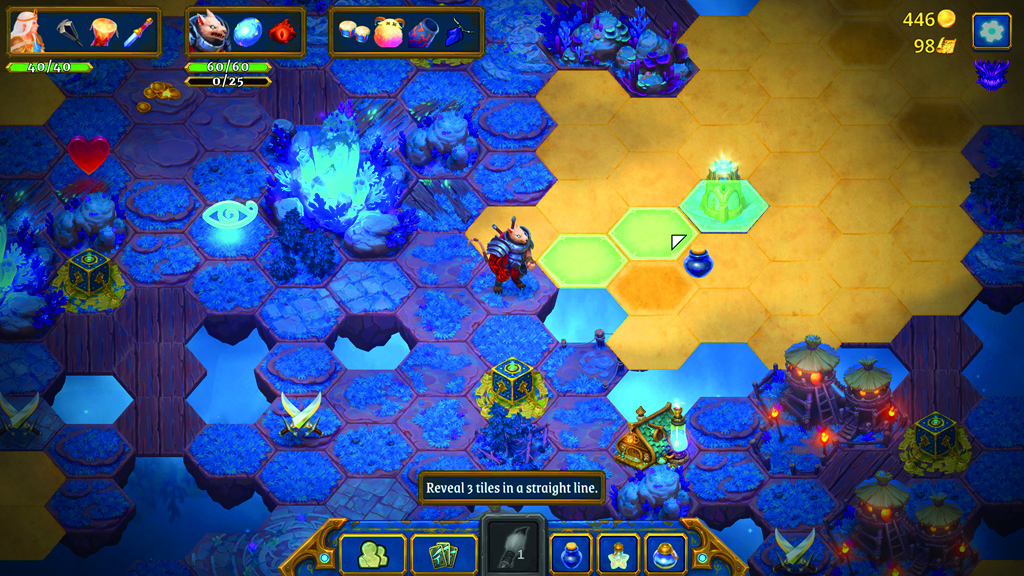
It’s fascinating how much rejecting the idea entirely makes Roguebook stand out. At its core, it’s a similar game to Slay the Spire, but the feel is very different.
Roguebook wants your deck to grow. As you add more cards, you gain powerful perks for your characters, many of which are further empowered by adding even more – and you get almost no opportunities to trim. Rather than refi ning down to a perfectly balanced machine, you’re bolting new parts onto your unwieldy engine of battle, trying to find the larger synergies that make each addition a boon instead of a liability.
By the end of a run, a good deck will have multiple complementary strategies. And far from becoming more predictable as you go, combat only gets more complex. By the time you hit the final boss, you’re thinking on your feet every turn.
Is it a better approach? Not necessarily – it has its own downsides, including leaving you much more at the mercy of probability. But as someone with hundreds of hours sunk into deck-builders, it’s lovely how refreshing and exciting one clever twist on the formula can be.
Playing a character in someone else's story in Final Fantasy XIV - Daniella Lucas
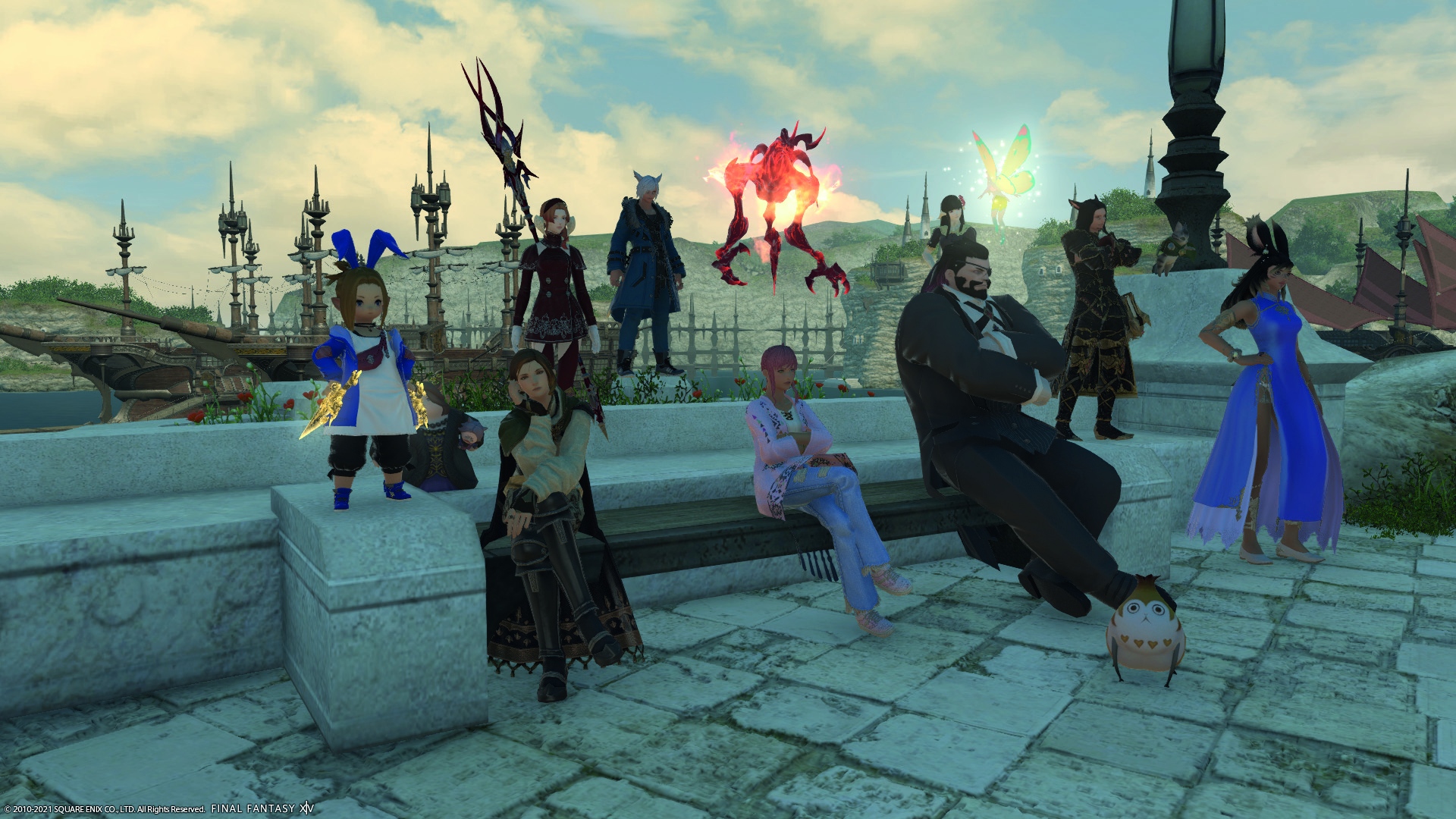
After sharing loads of exciting new info for the upcoming Endwalker expansion and celebrating all things Final Fantasy XIV at the FFXIV Fan Festival back in May, the game’s music director Masayoshi Soken got up on stage and revealed he had been battling cancer over the last year. The revelation shocked fans and his colleagues as he kept the entire thing secret. He said he didn’t want to worry anyone, and revealed that working towards something for the sake of the fans helped him keep going. “Videogames can really heal,” he said, while everyone fought back tears on stage.
It was an incredibly poignant moment that resonated with many players, who soon started sharing their own stories of how FFXIV and its community helped them, be that by relating to the character’s struggles or through making friends in game. My story is a little more mundane. There was no fateful friendly meeting or special story beat that saved me – it was the simple sight of strangers silently going about their business that I found healing.
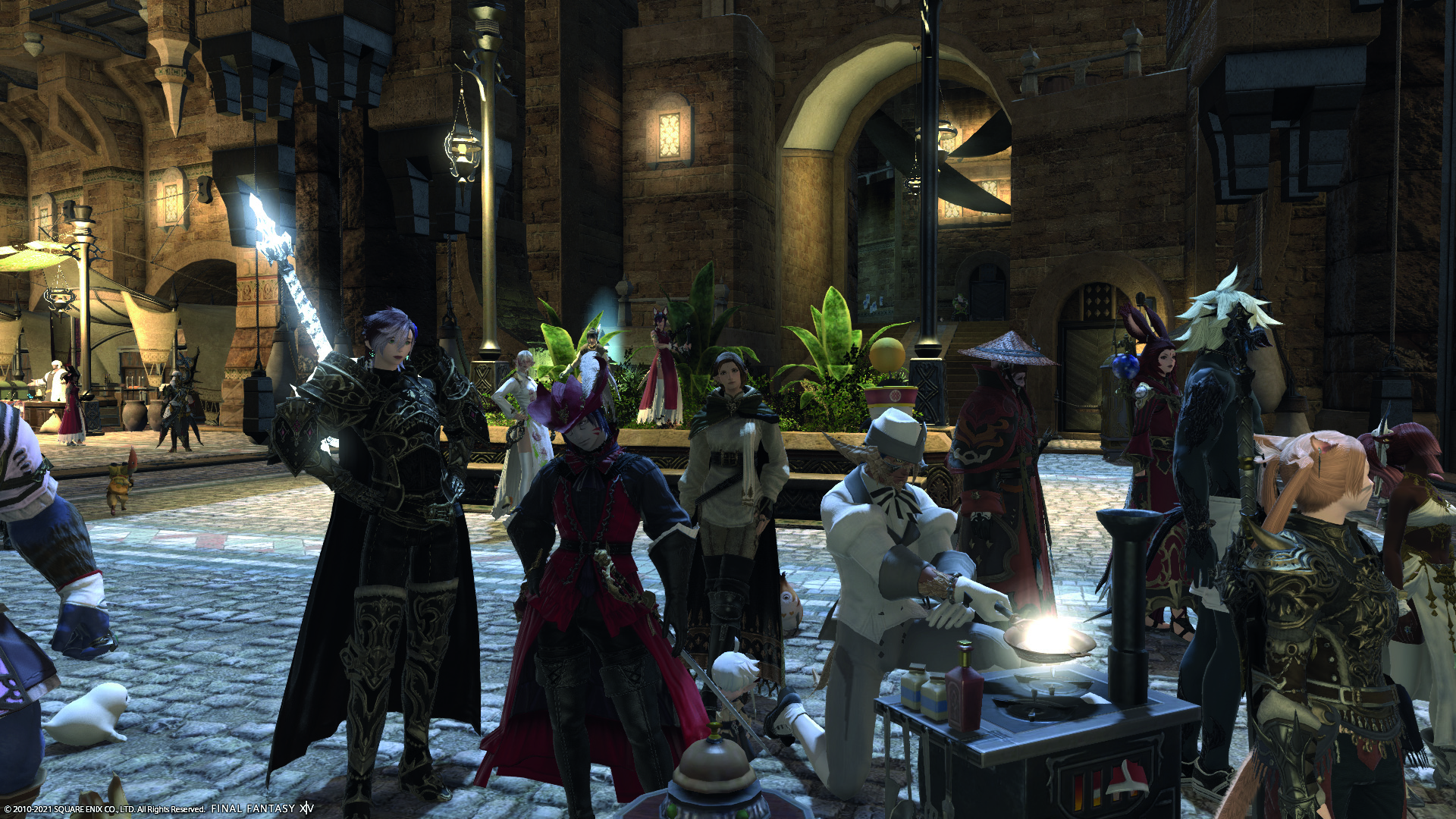
I had my daughter back in 2018 and while it was a joyous occasion with many people joking about how I wouldn’t have time for gaming anymore, I found myself incredibly isolated. The adjustment was hard, and I found myself glued to the sofa with a depression diagnosis. At first I didn’t think I could play FFXIV anymore – how can you commit to playing any dungeons when you might have to drop out at any second to feed your helpless little flesh potato? I was afraid to let anyone down. “At least I can craft,” I told myself when I finally plucked up the courage to try returning. While I parked my character in Ul’Dah and slowly started working on my crafting logs, other players would run past me, interacting with marketboards or emoting at friends. It felt nice to be in a crowd – even if it wasn’t in real life there were still real people behind those characters.
Eventually I tried doing some short trial and raid boss fights, and the more often I logged on, even if it was only for 15 minutes at a time, the less lonely I felt. Just knowing I could exist in a space alongside others, even though it wasn’t ‘real’, felt empowering. I could be a part of something for someone else’s journey. All of those brief moments, those snapshots into other people’s lives as they handed in quests and teleported into town, were enough to make me feel a little more human and a little more like myself again. Thousands of people helped me out of a dark place just by existing in FFXIV, and they never even knew it. That’s the healing power of games.
Flapping the long wing of the law in Chicken Police: Paint it Red! - Luke Kemp
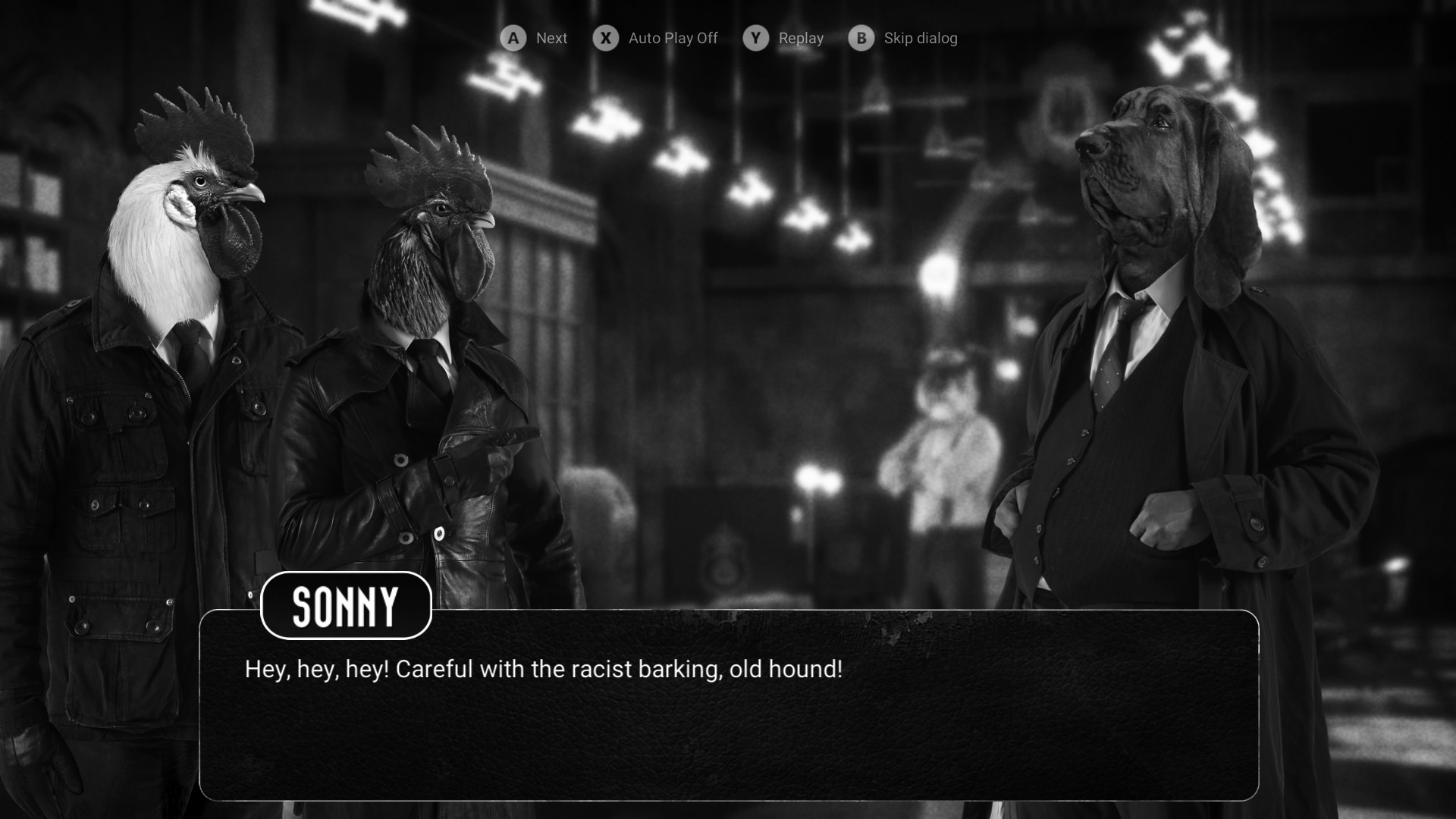
With a title like that, and heroes named Sonny Featherland and Marty MacChicken, I was always going to buy this game eventually. Then along came another Epic Games Store sale with those £10 vouchers, and it was mine. Is it what I was expecting? Not really, because I wasn’t entirely sure what to expect, which is exactly why I bought it.
Chicken Police is a noir detective adventure where all the characters are animals. And Chicken Police has a sense of humour. Well, as long as you can get past the horrific implications of things like one of the main characters wearing a leather jacket.
Chicken Police – as you’ve probably noticed from the screenshots – essentially photoshops animal heads onto human bodies. I honestly can’t tell if the most hilarious and absurd moments that this generates are intentional or not. What I’m pretty confident of is that there’s an intent to attract the ‘furry’ market. There’s a brothel. I don’t have a problem with this per se, but when I came across a Lemur in high heels and a fi gure-hugging dress staring at me unblinkingly, I had to go and have a little lie down.
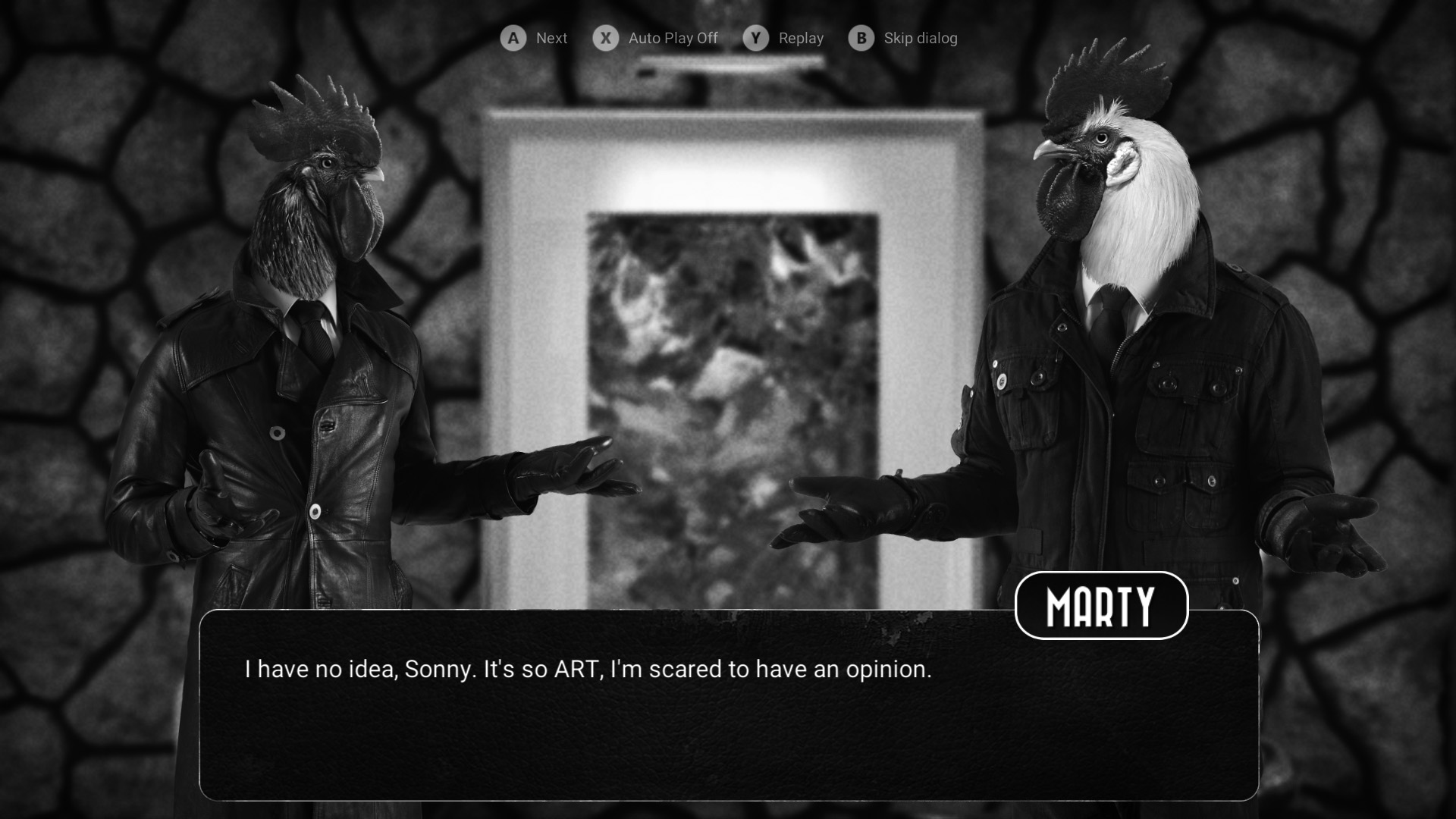
Despite the absurdist trappings, the noir leanings are worn proudly on the game’s digital sleeve. There are a handful of sledgehammer-subtle Raymond Chandler references, and the primary voice actor seems to have been told to do his best Humphrey “The noir leanings are worn proudly on the game’s digital sleeve” Bogart impression. Everything is even presented in black and white for the most part, colour used only occasionally for dramatic effect. It also, I imagine, helps paper over the photoshopping cracks.
The writing and acting are both pretty good, and I’m pleasantly surprised to find that there’s actually a bit of proper detective stuff. It doesn’t seem possible to fail the bits where you draw major conclusions, but I love the fact that I can mess up suspect interviews – failing to get all possible info out of them – and choose to carry on with what I’ve got rather than retry. I can also confidently state that no other game I’ve ever played has so effectively communicated sexual tension between a chicken and a cat.
There are optional parts of the story, and so far, I’ve devoured them all. Partly, it’s because I’ve learned that these scenes can dig up info relevant to the case. Mostly, though, I suppose it’s because playing Chicken Police is one of the most surreal experiences of my life – and I don’t want to miss any of it.

Formerly the editor of PC Gamer magazine (and the dearly departed GamesMaster), Robin combines years of experience in games journalism with a lifelong love of PC gaming. First hypnotised by the light of the monitor as he muddled through Simon the Sorcerer on his uncle’s machine, he’s been a devotee ever since, devouring any RPG or strategy game to stumble into his path. Now he's channelling that devotion into filling this lovely website with features, news, reviews, and all of his hottest takes.

